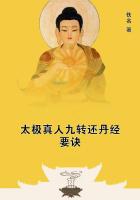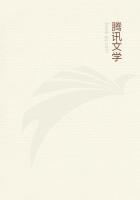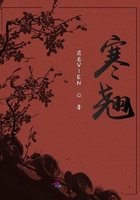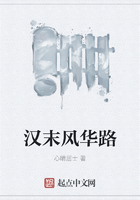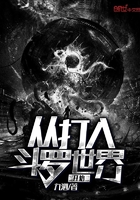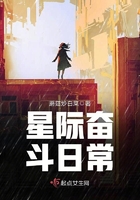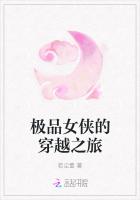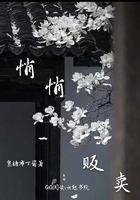What do you want to know about next? More about the caves in which the old savages lived,--how they were made, and how the curious things inside them got there, and so forth.
Well, we will talk about that in good time: but now--What is that coming down the hill?
Oh, only some chalk-carts.
Only some chalk-carts? It seems to me that these chalk-carts are the very things we want; that if we follow them far enough--I do not mean with our feet along the public road, but with our thoughts along a road which, I am sorry to say, the public do not yet know much about--we shall come to a cave, and understand how a cave is made. Meanwhile, do not be in a hurry to say, "Only a chalk-cart," or only a mouse, or only a dead leaf. Chalk-carts, like mice, and dead leaves, and most other matters in the universe are very curious and odd things in the eyes of wise and reasonable people. Whenever I hear young men saying "only" this and "only" that, I begin to suspect them of belonging, not to the noble army of sages--much less to the most noble army of martyrs,--but to the ignoble army of noodles, who think nothing interesting or important but dinners, and balls, and races, and back-biting their neighbours; and I should be sorry to see you enlisting in that regiment when you grow up. But think--are not chalk-carts very odd and curious things? I think they are. To my mind, it is a curious question how men ever thought of inventing wheels; and, again, when they first thought of it. It is a curious question, too, how men ever found out that they could make horses work for them, and so began to tame them, instead of eating them, and a curious question (which I think we shall never get answered) when the first horse-tamer lived, and in what country. And a very curious, and, to me, a beautiful sight it is, to see those two noble horses obeying that little boy, whom they could kill with a single kick.
But, beside all this, there is a question, which ought to be a curious one to you (for I suspect you cannot answer it)--Why does the farmer take the trouble to send his cart and horses eight miles and more, to draw in chalk from Odiham chalk-pit?
Oh, he is going to put it on the land, of course. They are chalking the bit at the top of the next field, where the copse was grubbed.
But what good will he do by putting chalk on it? Chalk is not rich and fertile, like manure, it is altogether poor, barren stuff: you know that, or ought to know it. Recollect the chalk cuttings and banks on the railway between Basingstoke and Winchester--how utterly barren they are. Though they have been open these thirty years, not a blade of grass, hardly a bit of moss, has grown on them, or will grow, perhaps, for centuries.
Come, let us find out something about the chalk before we talk about the caves. The chalk is here, and the caves are not; and "Learn from the thing that lies nearest you" is as good a rule as "Do the duty which lies nearest you." Let us come into the grubbed bit, and ask the farmer--there he is in his gig.
Well, old friend, and how are you? Here is a little boy who wants to know why you are putting chalk on your field.
Does he then? If he ever tries to farm round here, he will have to learn for his first rule--No chalk, no wheat.
But why?
Why, is more than I can tell, young squire. But if you want to see how it comes about, look here at this freshly-grubbed land-- how sour it is. You can see that by the colour of it--some black, some red, some green, some yellow, all full of sour iron, which will let nothing grow. After the chalk has been on it a year or two, those colours will have all gone out of it; and it will turn to a nice wholesome brown, like the rest of the field; and then you will know that the land is sweet, and fit for any crop. Now do you mind what I tell you, and then I'll tell you something more. We put on the chalk because, beside sweetening the land, it will hold water. You see, the land about here, though it is often very wet from springs, is sandy and hungry; and when we drain the bottom water out of it, the top water (that is, the rain) is apt to run through it too fast: and then it dries and burns up; and we get no plant of wheat, nor of turnips either. So we put on chalk to hold water, and keep the ground moist.
But how can these lumps of chalk hold water? They are not made like cups.
No: but they are made like sponges, which serves our turn better still. Just take up that lump, young squire, and you'll see water enough in it, or rather looking out of it, and staring you in the face.
Why! one side of the lump is all over thick ice.
So it is. All that water was inside the chalk last night, till it froze. And then it came squeezing out of the holes in the chalk in strings, as you may see it if you break the ice across. Now you may judge for yourself how much water a load of chalk will hold, even on a dry summer's day. And now, if you'll excuse me, sir, I must be off to market.
Was it all true that the farmer said?
Quite true, I believe. He is not a scientific man--that is, he does not know the chemical causes of all these things; but his knowledge is sound and useful, because it comes from long experience. He and his forefathers, perhaps for a thousand years and more, have been farming this country, reading Madam How's books with very keen eyes, experimenting and watching, very carefully and rationally; ****** mistakes often, and failing and losing their crops and their money; but learning from their mistakes, till their empiric knowledge, as it is called, helps them to grow sometimes quite as good crops as if they had learned agricultural chemistry.
What he meant by the chalk sweetening the land you would not understand yet, and I can hardly tell you; for chemists are not yet agreed how it happens. But he was right; and right, too, what he told you about the water inside the chalk, which is more important to us just now; for, if we follow it out, we shall surely come to a cave at last.

